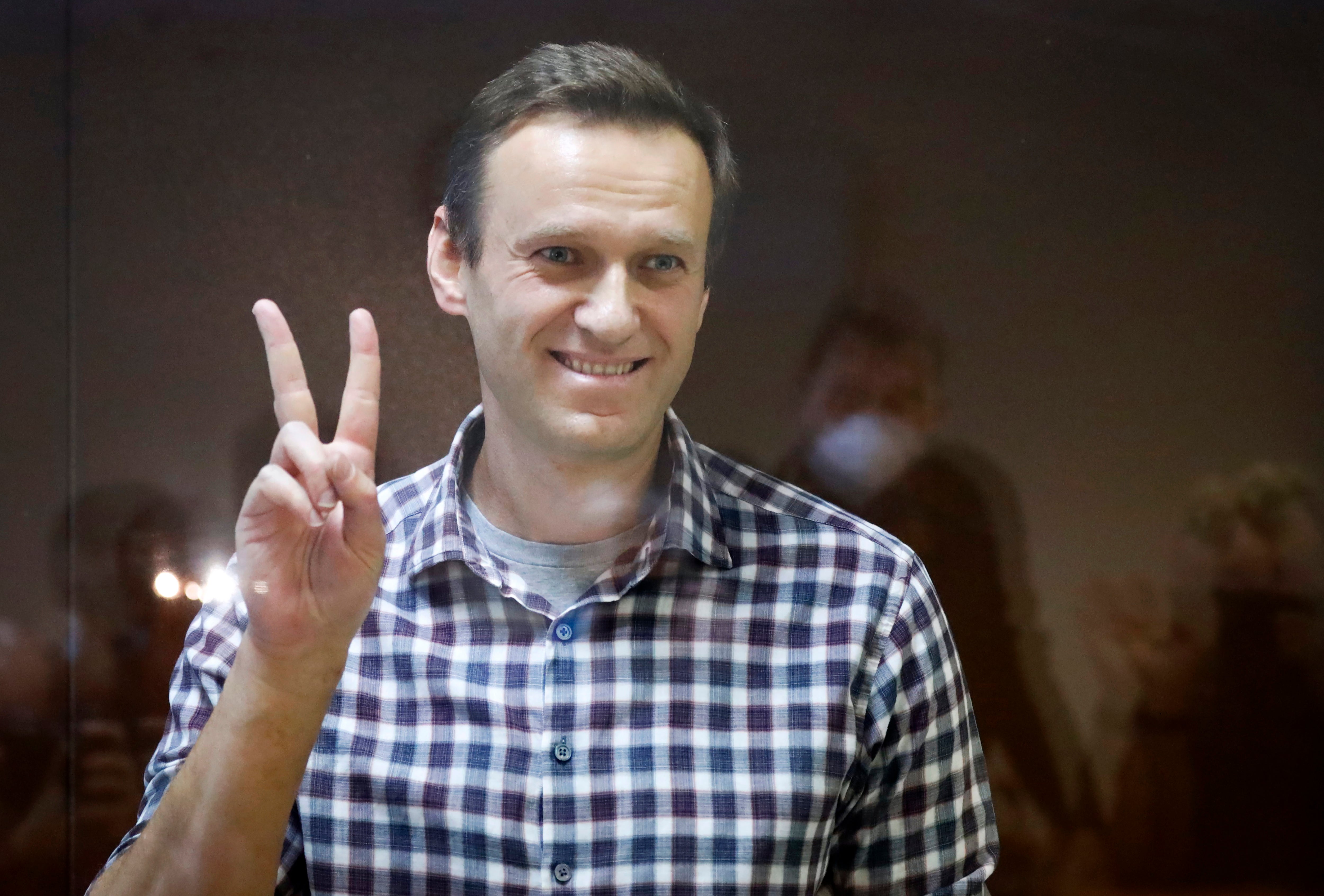Jailed Russian opposition leader Navalny wins top EU prize
Alexei Navalny is President Vladimir Putin’s main critic

Your support helps us to tell the story
From reproductive rights to climate change to Big Tech, The Independent is on the ground when the story is developing. Whether it's investigating the financials of Elon Musk's pro-Trump PAC or producing our latest documentary, 'The A Word', which shines a light on the American women fighting for reproductive rights, we know how important it is to parse out the facts from the messaging.
At such a critical moment in US history, we need reporters on the ground. Your donation allows us to keep sending journalists to speak to both sides of the story.
The Independent is trusted by Americans across the entire political spectrum. And unlike many other quality news outlets, we choose not to lock Americans out of our reporting and analysis with paywalls. We believe quality journalism should be available to everyone, paid for by those who can afford it.
Your support makes all the difference.Imprisoned Russian opposition leader Alexei Navalny President Vladimir Putin’s main critic, was awarded the European Union’s top human rights prize on Wednesday.
In a sign of open criticism of the Kremlin, the leaders of the European Parliament picked the Russian politician for the Sakharov Prize. Other candidates had been a group of Afghan women, and imprisoned Bolivian politician and former interim President Jeanine Anez
The parliament's EPP Christian Democrat group announced the decision in a tweet.
“Mr. Putin, free Alexei Navalny. Europe calls for his — and all other political prisoners’ — freedom,” it said.
Navalny survived a Soviet-era nerve agent poisoning while on a domestic flight in Russia. After receiving treatment and recovering in Germany, he returned to Russia early this year, where he was promptly arrested and jailed.
Navalny's recognition with the human rights prize will put a further damper on relations between the 27-nation bloc and Russia. These have been on the decline for years, especially following Moscow’s 2014 annexation of Ukraine’s Crimean Peninsula and its support for a separatist insurgency in eastern Ukraine.
Russia's treatment of Navalny has only exacerbated matters. The EU has been calling for his immediate and unconditional release in what it sees as a politically motivated imprisonment and has said it holds Moscow responsible for his health.
The EU imposed sanctions last year on six senior Russian officials for their alleged involvement in the poison attack on Navalny. Russia denies any involvement in the poisoning.
The 50,000-euro ($582,000) prize itself will be awarded during the Dec. 15 session of the European Parliament in Strasbourg, France.
The group of Afghan women — who include human rights activists, a journalist and cultural figures — had also been a strong contender. The fate of Afghan women has taken center stage again since the Taliban took power in the wake of the U.S. military departure from the country in August.
Despite initial promises to protect the rights of women, especially in education, the Taliban have come under criticism, including from the United Nations, for not sticking to those commitments.